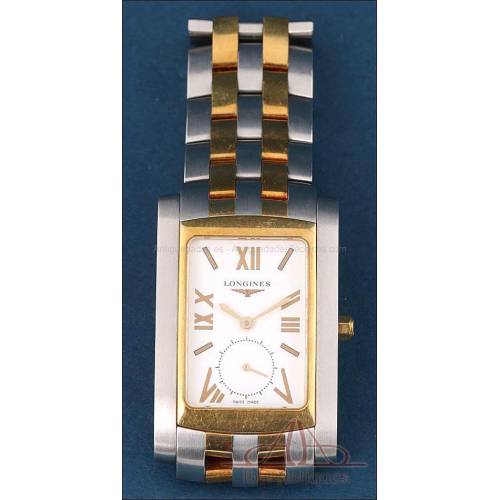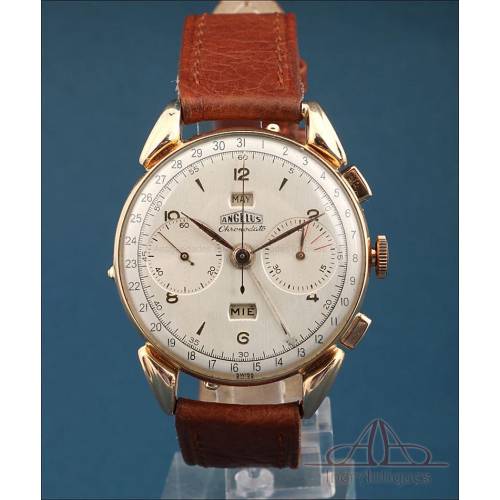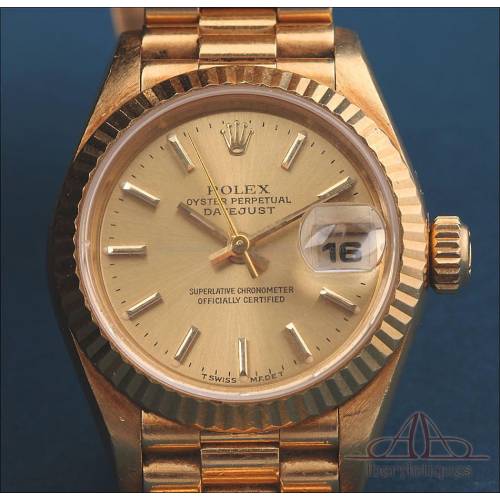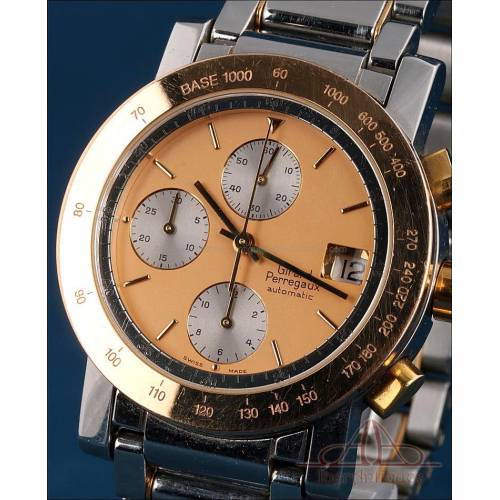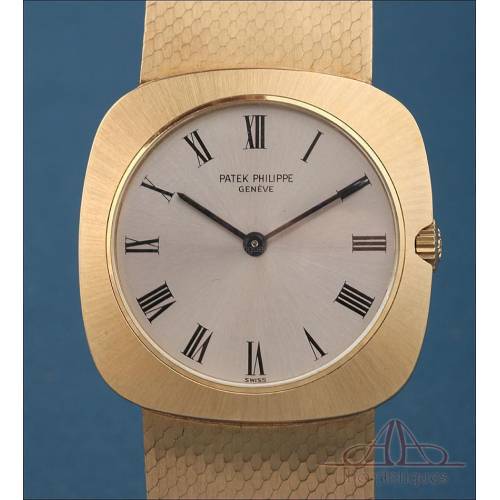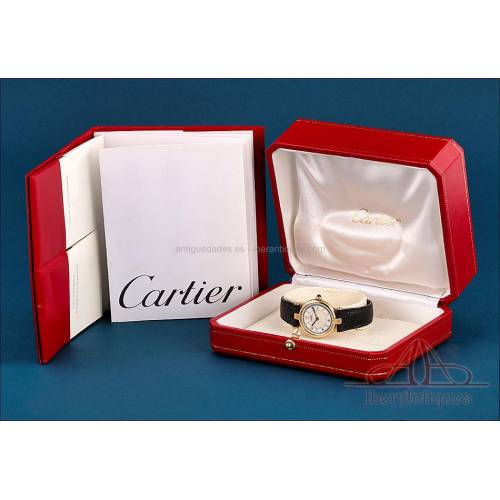E-118
Rolex Cellini Gents Wristwatch. 18K Gold. Switzerland, 1968
Stylish 18K gold Rolex Cellini wristwatch. In its original case and with gold mesh bracelet. Very beautiful.
Rolex Cellini Gents’ Wristwatch. 18K Gold. Switzerland, 1968
Striking Rolex Cellini gents’ wristwatch in 18K gold, made in Switzerland in 1968 and in perfect working order. The design of this watch is representative of its time, quite sober and elegant. It is the model Cellini with reference 4114. The dial is square in shape and ample, with the brand logo (a five-pointed crown) at the 12 position and the brand name and model printed in black lettering. The logo can also be seen in the crown, the bracelet’s lock and the rear cap, where it is accompanied by the engraved serial number 2682670. The strap is made of 18K gold, a little open at one point, (photo 4), but solid. Inside the rear cap we can see several numbers and hallmarks, together with the gold proportion, 0.750. The mechanical movement is really good-looking and remains in excellent condition. It mounts 16 rubies and its caliber is 1600. The watch comes in its original case and box but does not come with documentation.
This Rolex Cellini gents’ wristwatch in 18K gold will stand out in a good collection or as part of the most elegant outfit.
Dimensions: Diameter: 30 mm. Weight: 71 g.
Rolex – History
Rolex is an iconic luxury watch company created more than 150 years ago. It started out in 1905, when Hans Wilsdorf and Alfred David found a watchmaking business in London. In 1908 they register the brand name Rolex and change the company’s name, which will be renamed as Rolex Watch Co. Ltd. After World War I, the hard economic situation of the United Kingdom makes them move their business to Geneva, Switzerland. In 1920 Hans Wildorfs registers the company in the Swiss city with the name Montres Rolex SA, which later will become Rolex SA. After his wife’s death in 1944, Wilsdorf creates private trust and leaves all his private shares to it, ensuring that part of the company’s income will go to charity from then on. Wilsdorf dies in 1960 and the business is taken over by the trust, which is still running it.























